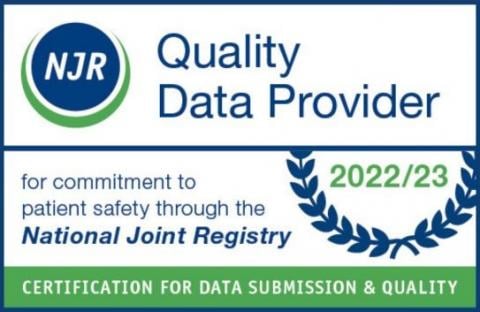
Have you ever been out enjoying a lovely spring day when suddenly, that all-too-familiar urge hits you? You find yourself desperately searching for the nearest loo, only to pass a few drops when you finally reach it, accompanied by that familiar burning sensation and the frustrating realisation that you might be dealing with yet another urinary tract infection. If this scenario sounds painfully familiar, you’re not alone. Urinary Tract Infections (UTIs) affect millions of women worldwide.
Mr Anand Singh, Consultant Urogynaecologist at New Victoria Hospital, explores innovative non-antibiotic strategies to prevent and manage UTIs, empowering women to take control of their bladder health and step away from antibiotic overuse.
A patient-centred approach
Urinary tract infections (UTIs) are one of the most common infections affecting women, with over half experiencing at least one in their lifetime. For some women, unfortunately, these bothersome infections become a recurring nightmare (rUTIs), where infections keep coming back, causing discomfort, stress, and the need for repeated antibiotic treatments. While antibiotics are often necessary, overuse can lead to antibiotic resistance, making future infections harder to treat.
But what if we told you there's a new way to tackle UTIs that doesn't rely solely on antibiotics? A more practical, patient-centred approach focuses on preventing UTIs before they start and reducing the need for antibiotics. This article explores simple lifestyle adjustments, dietary supplements, probiotics, bladder treatments, and new innovations like vaccines – strategies that can help both women and clinicians take control of UTI prevention.
Why do UTIs keep coming back?
Most UTIs are caused by Escherichia coli (E. coli), bacteria that normally live in the intestines but can wreak havoc and cause infections if they enter the urinary tract. Women are more prone to UTIs because their urethra (the tube that carries urine out of the body) is shorter and closer to the anus, which provides an easier pathway for bacteria to reach the bladder. But did you know that certain lifestyle factors could be increasing your risk?
Common risk factors for UTIs include:
- Sexual activity, which can introduce bacteria into the urinary tract.
- Menopause due to lower oestrogen levels that weaken the bladder’s defences.
- Holding in urine too long giving bacteria more time to multiply.
- Certain birth control methods, like spermicides, which disrupt good bacteria.
- A weakened immune system such as in diabetes or chronic illness.
Why antibiotics aren’t always the best solution
Antibiotics have long been the go-to treatment for UTIs, but their overuse has serious downsides:
- Antibiotic resistance: Over time, bacteria can become resistant, making infections harder to treat. Some women develop UTIs that no longer respond to common antibiotics, leading to stronger, more expensive treatments with more side effects.
- Disruption of good bacteria: Antibiotics wipe out both harmful and beneficial bacteria, disturbing the balance of the vaginal and gut microbiome. This can make you more vulnerable to future UTIs, yeast infections, and digestive issues.
- Side Effects: Long-term antibiotic use can lead to nausea, diarrhoea, allergic reactions, and increased risk of Clostridium difficile (C. diff) infections, a severe gut infection.
So, what's the alternative? Enter the new paradigm in UTI management. Because of the above risks, many clinicians are now shifting towards non-antibiotic strategies to prevent and manage UTIs before they require medical treatment.
Non-antibiotic strategies: your UTI prevention toolkit
A combination of lifestyle adjustments, supplements, bladder treatments, and emerging therapies can help prevent UTIs and reduce the need for antibiotics.
1. Hydration and diet – your first line of defence
Drinking 2–3 litres of water daily helps to flush bacteria out of your urinary tract before they can cause an infection. However, beware bladder irritants like caffeine, alcohol, and artificial sweeteners found in many fizzy drinks, as these can contribute to irritation and inflammation.
Cranberry extract & vitamin C:
Cranberries contain proanthocyanidins, which prevent E. coli from sticking to the bladder wall, while vitamin C acidifies urine, making it less hospitable to bacteria.
2. D-mannose: a natural sugar that prevents UTIs
D-mannose is a naturally occurring sugar that prevents bacteria from sticking to the bladder lining, allowing them to be flushed out in urine. Some research suggests that D-mannose might even be as effective as low-dose antibiotics in preventing recurrent UTIs. It is often taken as a daily supplement or at the first sign of symptoms. Current recommendations are a dose of between 1000-2000mg (1-2g), and this can be easily sourced over the counter at most health food stores. Course duration varies but is typically between 3 and 6 months.
3. Methenamine: an alternative to antibiotics
Methenamine is a urinary antiseptic that works by creating formaldehyde in the bladder, an organic compound that kills bacteria by breaking down the walls of the pathogen cell without contributing to antibiotic resistance. It is especially useful for women who experience recurrent UTIs and want to avoid long-term antibiotic use. Your Urogynaecology Consultant will advise on a suitable dose and duration of the treatment.
Course duration varies but is typically between 3 and 6 months.
4. Probiotics: restoring good bacteria
Did you know your bladder has its own microbiome? Probiotics can help maintain a healthy balance of bacteria, making it harder for the troublemakers to take hold. Healthy bacteria, especially Lactobacillus, play a crucial role in preventing UTIs by maintaining the natural balance of bacteria in the gut, vagina, and urinary tract.
Taking a daily probiotic (oral or vaginal) can:
- Lower UTI risk by outcompeting harmful bacteria like E. coli.
- Maintain vaginal pH at an optimal level, reducing bacterial overgrowth.
- Support immune function, making infections less likely.
5. Oestrogen therapy: a boost for postmenopausal women
After menopause, lower oestrogen levels can thin the bladder lining and reduce protective vaginal bacteria, increasing UTI risk. Vaginal oestrogen creams, tablets, or rings can help restore this balance, reducing infections without the risks of systemic hormone replacement therapy. Whilst there may be some limitations to their long-term use, generally they are very safe to take and should be prescribed by a clinician with expertise in their usage for this indication.
6. Glycosaminoglycan (GAG) supplements: strengthening the bladder barrier
The bladder's protective GAG layer prevents bacteria from attaching to its surface. When this layer is weakened, infections become more frequent. GAG supplements such as hyaluronic acid and chondroitin sulphate, taken orally or through bladder instillations, help rebuild this protective barrier.
7. Bladder instillations: targeted bladder therapy
If you are suffering from chronic UTIs or interstitial cystitis (IC), a form of bladder pain syndrome where the cause is not bacterial, bladder instillations provide direct healing to the bladder lining. These treatments involve inserting a liquid solution into the bladder via a catheter, delivering substances like:
- GAG layer supplements (hyaluronic acid, chondroitin sulphate) to restore the bladder’s protective barrier.
- Anti-inflammatory agents to reduce bladder irritation and pain.
They are especially helpful for women with frequent UTIs who do not respond well to oral treatments. Generally, a weekly commitment for 8 to 12 sessions is required for this therapy, which is provided by specialists in the outpatient hospital setting. The procedure is very minimally invasive and very well tolerated, with excellent success in treating more stubborn rUTIs and IC long-term.
8. Vaccines for UTIs: a new frontier
Exciting developments are on the horizon. Several UTI vaccines are in development to help the immune system fight E. coli before an infection occurs. Although not yet available in the UK, these vaccines train the immune system to recognise and attack bacteria before they cause infections, aiming to offer a long-term solution for women prone to UTIs.
9. Antihistamines for inflammation and bladder pain
For some women who experience UTI-like symptoms but test negative for infection, histamine intolerance could be a factor. Antihistamines can help them by:
- Reducing bladder irritation caused by mast cell activation.
- Easing symptoms of bladder pain syndrome (interstitial cystitis).
Women with high histamine sensitivity or even histamine intolerances have shown very promising cure rates with anti-histamines or even simply following low histamine diets.
A personalised approach to UTI prevention
Remember, every woman's body is unique, and what works for your friend might not work for you. The key is to start with simple lifestyle changes and work your way through the options with guidance and a personalised treatment plan from your Urogynaecology Consultant. A step-by-step approach can help determine what works best:
- Start with lifestyle changes – increase water intake, avoid bladder irritants, and practice good hygiene.
- Add natural supplements like D-mannose, probiotics, and cranberry extract.
- Consider non-antibiotic medications, such as methenamine or GAG supplements.
- During or after menopause, explore vaginal oestrogen therapy.
- If UTIs persist, discuss advanced options like bladder instillations.
Instead of relying solely on short, ineffective course of recurrent antibiotic prescriptions, a multifaceted approach empowers women to prevent UTIs naturally, improve their quality of life, and protect their long-term health. If UTIs remain a persistent problem, clinicians can help tailor a personalised prevention plan that best fits your individual needs.
By shifting the focus to prevention rather than just treatment, we can improve outcomes for millions of women suffering from recurrent UTIs.
If you suffer from recurrent UTIs and are looking for a long-term prevention strategy, book an appointment with our Urogynaecology Consultants by calling 020 8949 9020 or complete our online form.













